Void is an independent publishing house dedicated to photography books and education. The project is driven by its founders Myrto Steirou and João Linneu.
Could you tell your story of the publishing house? Why are you interested in work connected to photography?
We started back in 2016 when the 3 of us (Void has now only 2 founding members, but we founded it as a trio) were practising photography, personal and commercial. By that time, we had an empty space in the heart of Athens to take over, and our idea would make it a studio, an exhibition space, and doing events, zines, etc. As time passed by, we were more in love with the zine part, which led us to a more solid publishing venture. And here we are today. With a nice project in hand, and without any time anymore to practice our own photography.
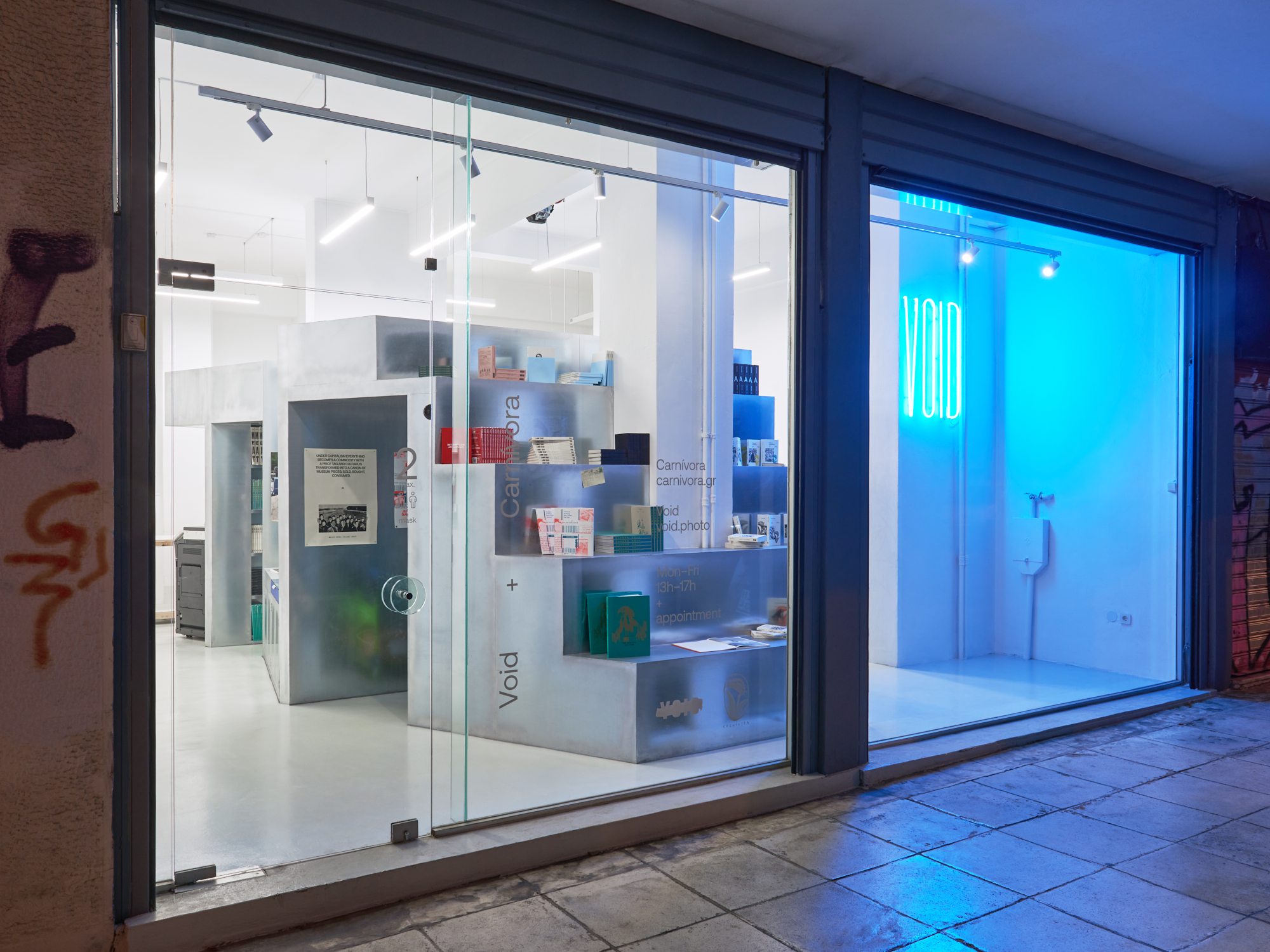
Void space in Athens
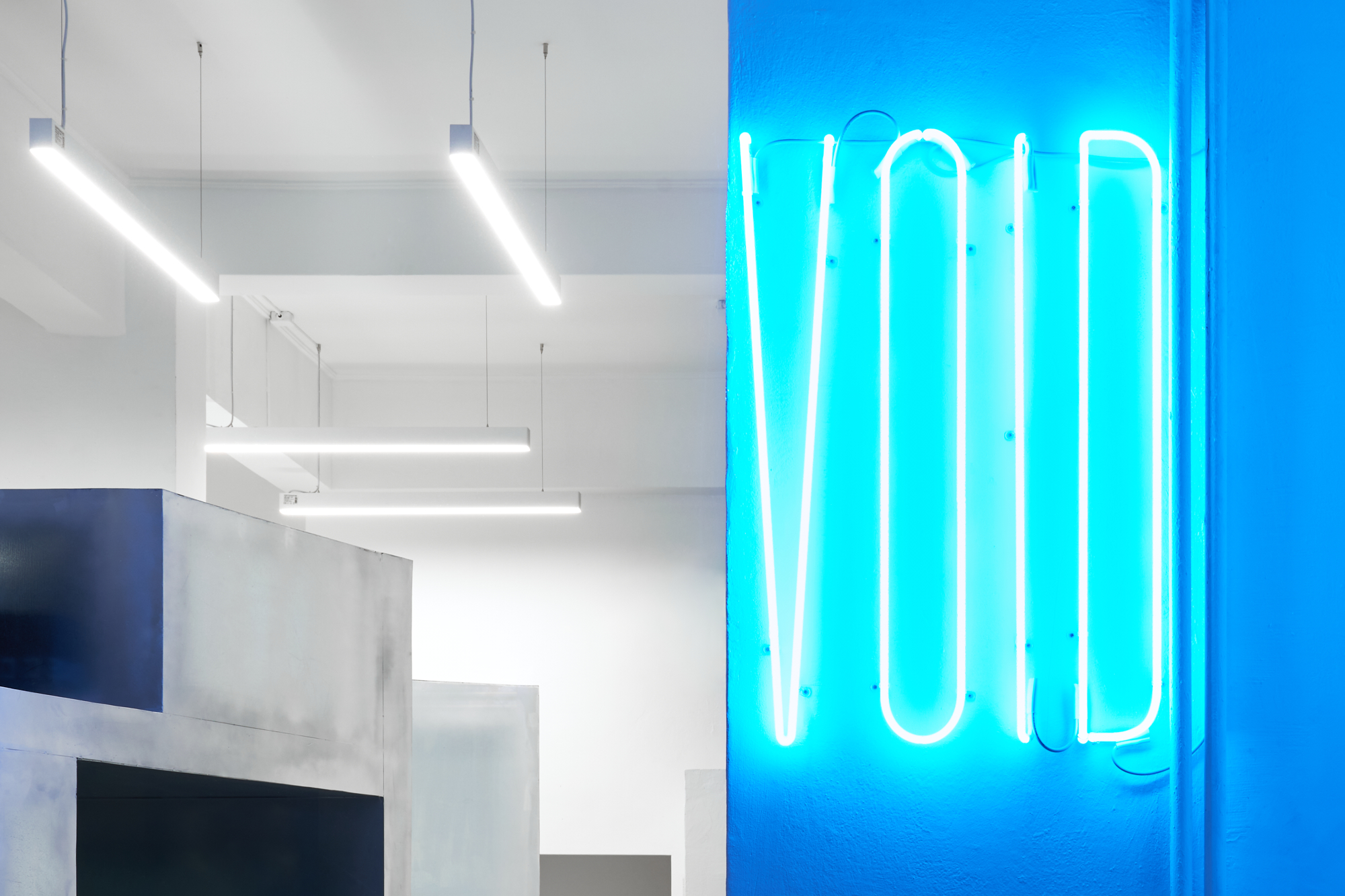
Void space in Athens
What is your mission, your goal?
Not sure we have a clear mission. We are driven by passion, and try to work with projects we love. In the need of making some sort of formal answer, we would say that Void wishes to promote fascinating photographic stories. Especially the ones that are tricky to be published. We also are very keen to publish debut books of photographers. That is also, commercially tricky to publish.
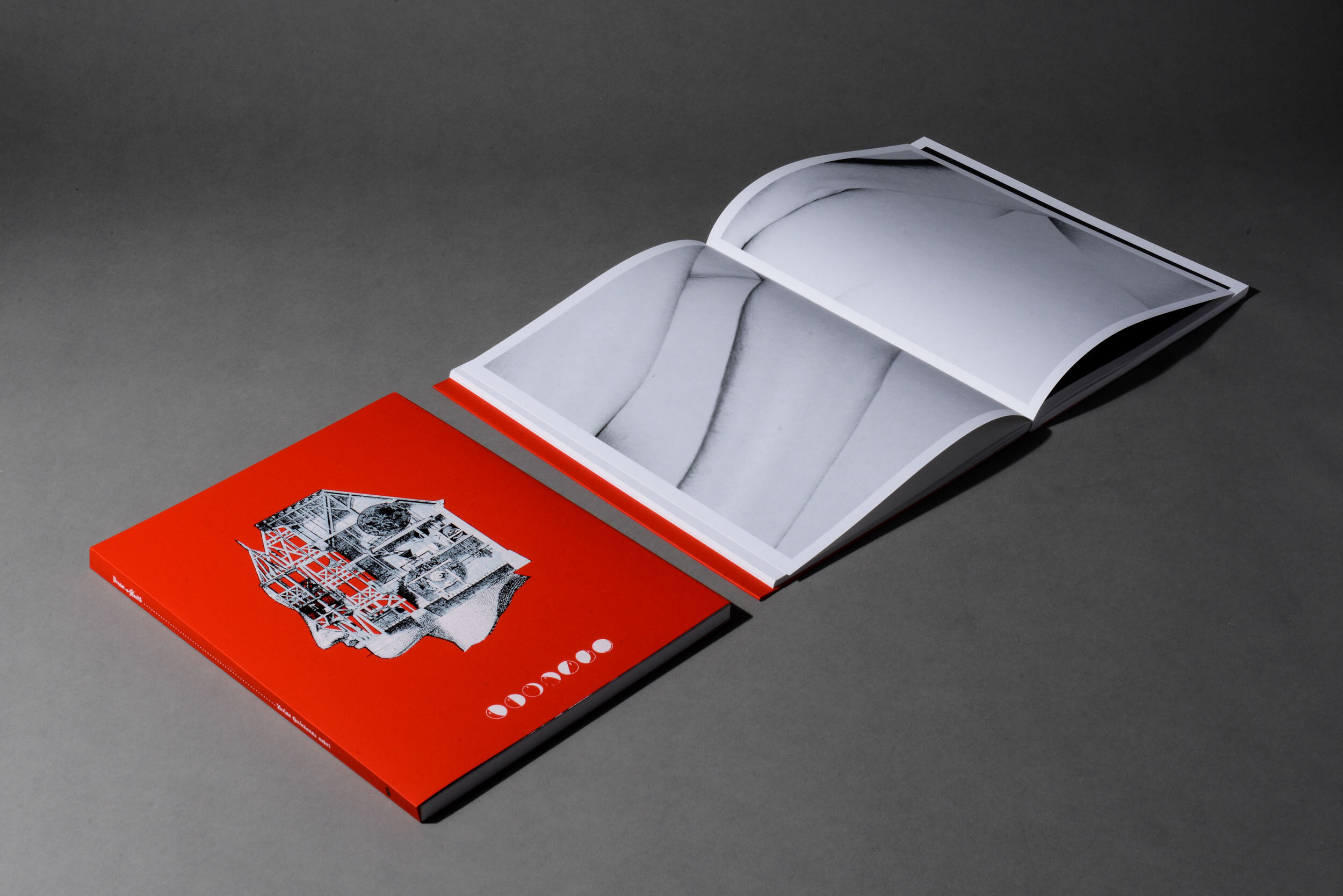
Yurian Quintanas Nobel "Dream Moons"
Do you face any difficulties in publishing? What are they?
There are a few issues that are tricky within independent publishing. Most of them are somewhat related to money. Funding is usually a big issue. We are a self-funded indie publishing house, and it makes our business model quite fragile. To make things more challenging, since mid-2021, paper prices skyrocketed (and are still rising), making the financial aspect of the business more adventurous. On top of that, logistics — which were never that easy (nor cheap) — got super tough since Putin woke up moody and invaded Ukraine. Shipping costs are directly related to oil prices, and lately, we sometimes face shipping costs more expensive than the books we sell. Making online sales quite non-appealing.
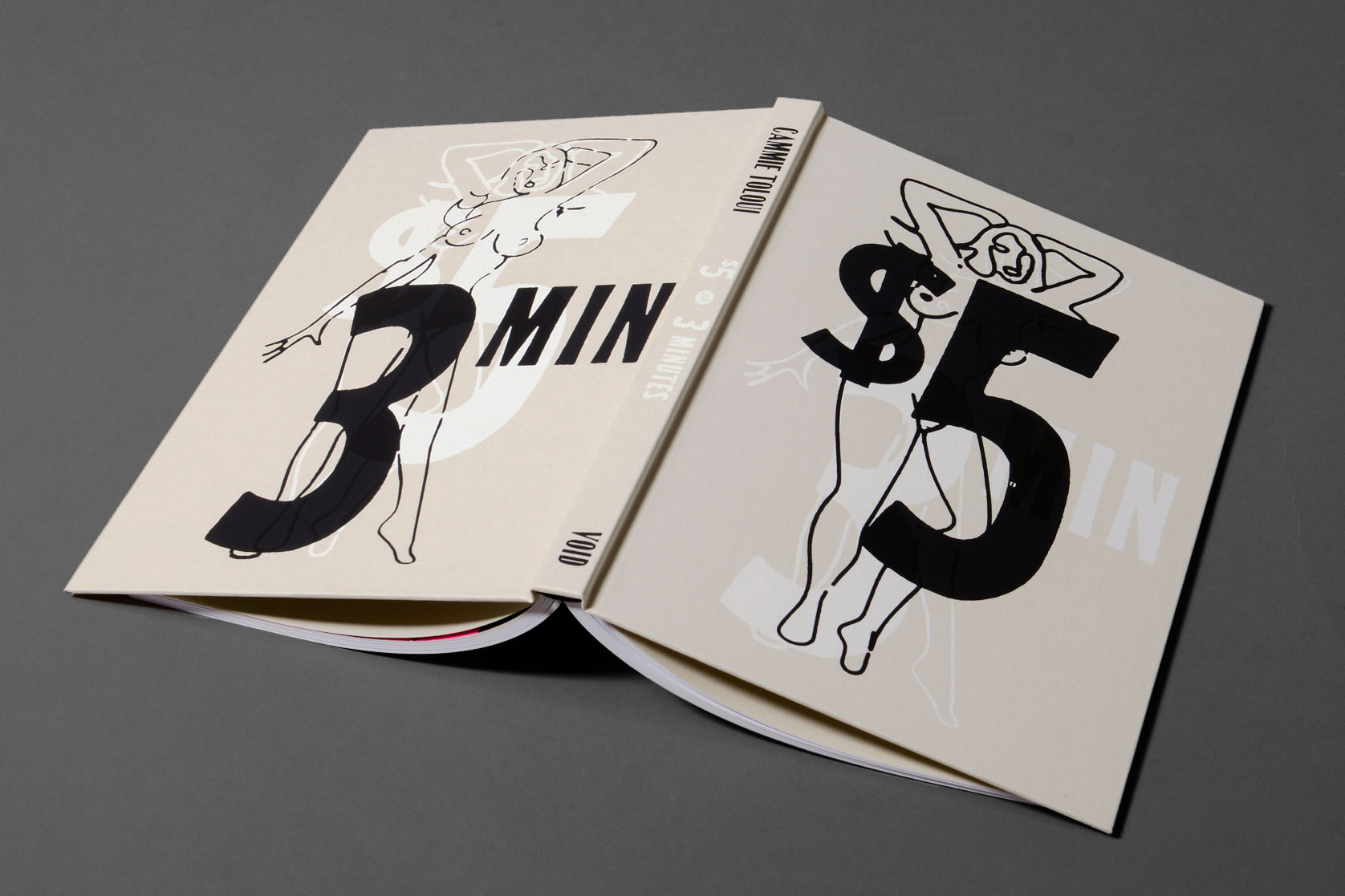
Cammie Toloui "5 Dollars for 3 Minutes"
How do you make the decision to work with particular authors? What are the criteria of choice?
We don’t have particular criteria. First of all, we should love the project. And this is very personal. This “personal taste” will somehow shape Void’s editorial line… and in this way, we also want to keep things coherent within our portfolio. Another important thing is to work with people we like. We worked a few times with assholes, and no matter how good the project might be, it doesn’t worth the excruciating pain. To give birth to a book (and keep pushing it) is a long journey. And we wanna share this ride with pleasant people.
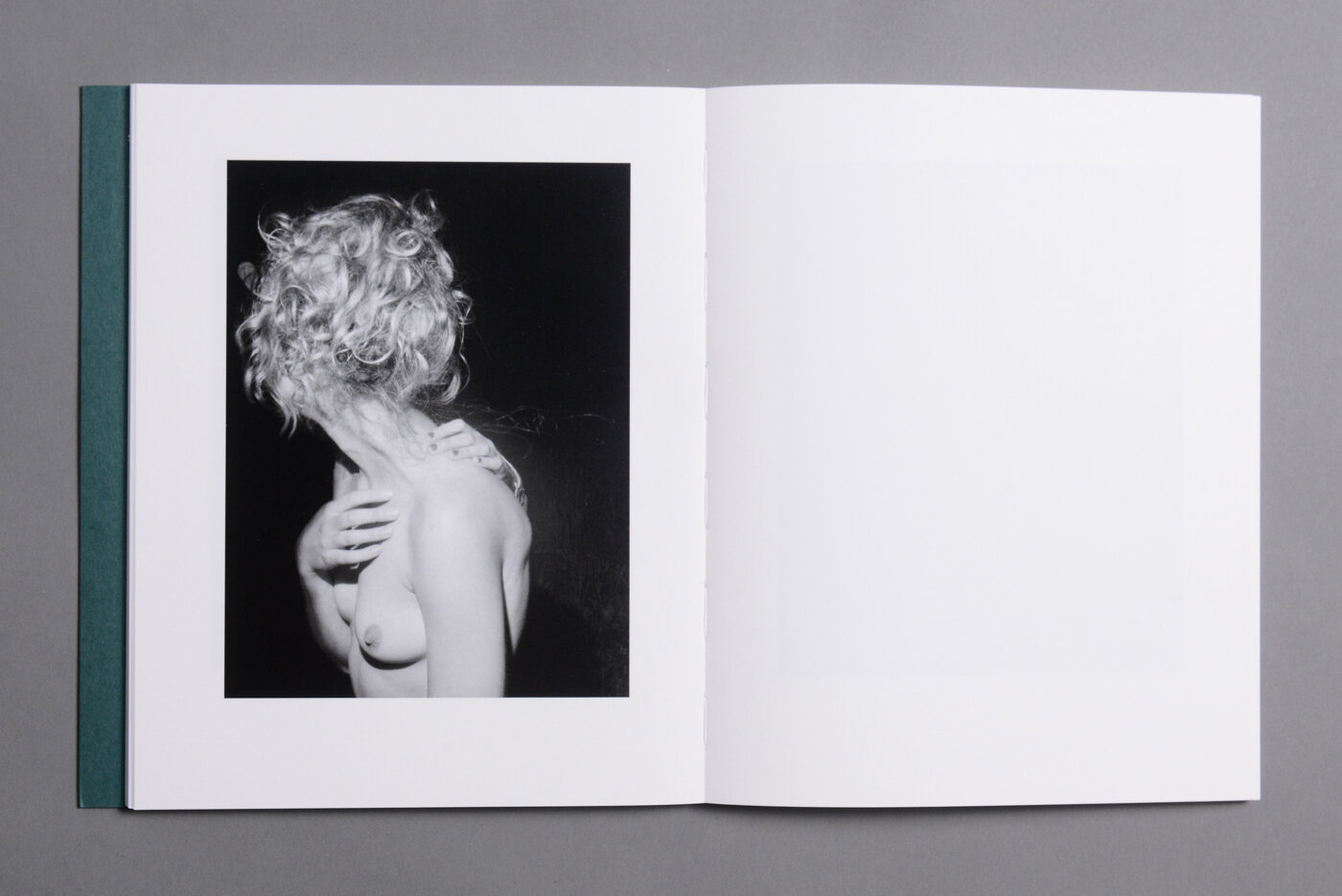
Dylan Hausthor & Paul Guilmoth "Sleep Creek"
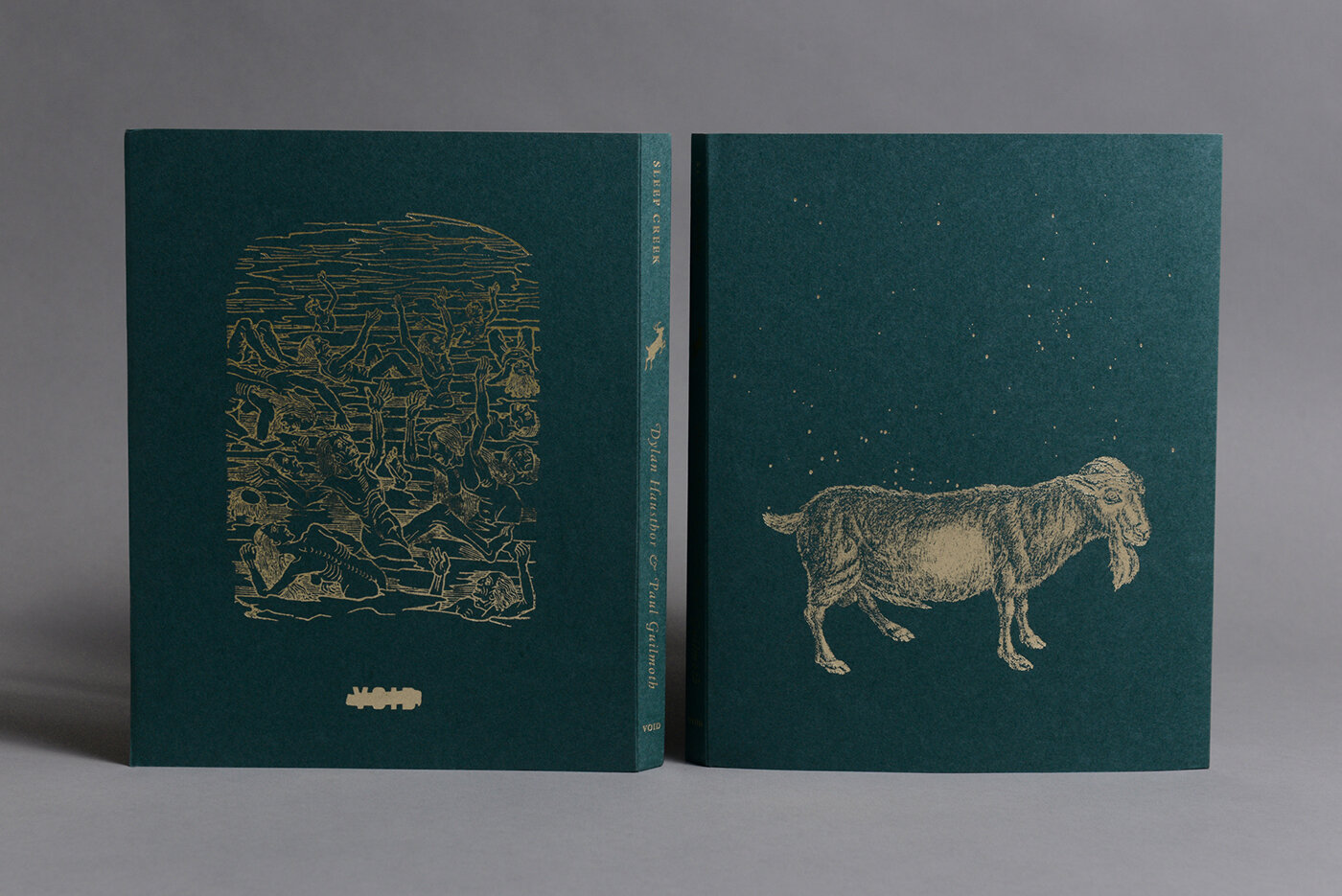
Dylan Hausthor & Paul Guilmoth "Sleep Creek"
Could you tell us about the stages of developing a book? How does the communication between an author and a publisher take place? How much time does it usually take from the moment when the idea is born to the realization? What happens when the press run is ready?
The answer to this question could be a book on its own. But trying to sum up as much as possible: the book starts with the editing, and then designing it. We usually look for an underlying concept for our books. And this is something that comes up in between the editing and designing process. We at Void are Myrto Steirou (editor) and João Linneu (designer), and we like to have exhausting talks with the artists about their projects, so we have as much information as possible to make a first proposal on how we envision the book to be. From this proposal, we invite the photographer to join us and start shaping and fine-tuning the design and editing. It might be a super sharp and fast process. Or it might take months. We like to make it a sharp process. As we strongly believe in intuition and we avoid over-thinking things. For us, it has proven effective.
This process is just the embryonic part of the book’s life. After that comes pre-press, production, launching strategy, distribution, PR, social media, fairs, e-commerce, etc. It is not exactly the fun part. But it is as important as the creative one.
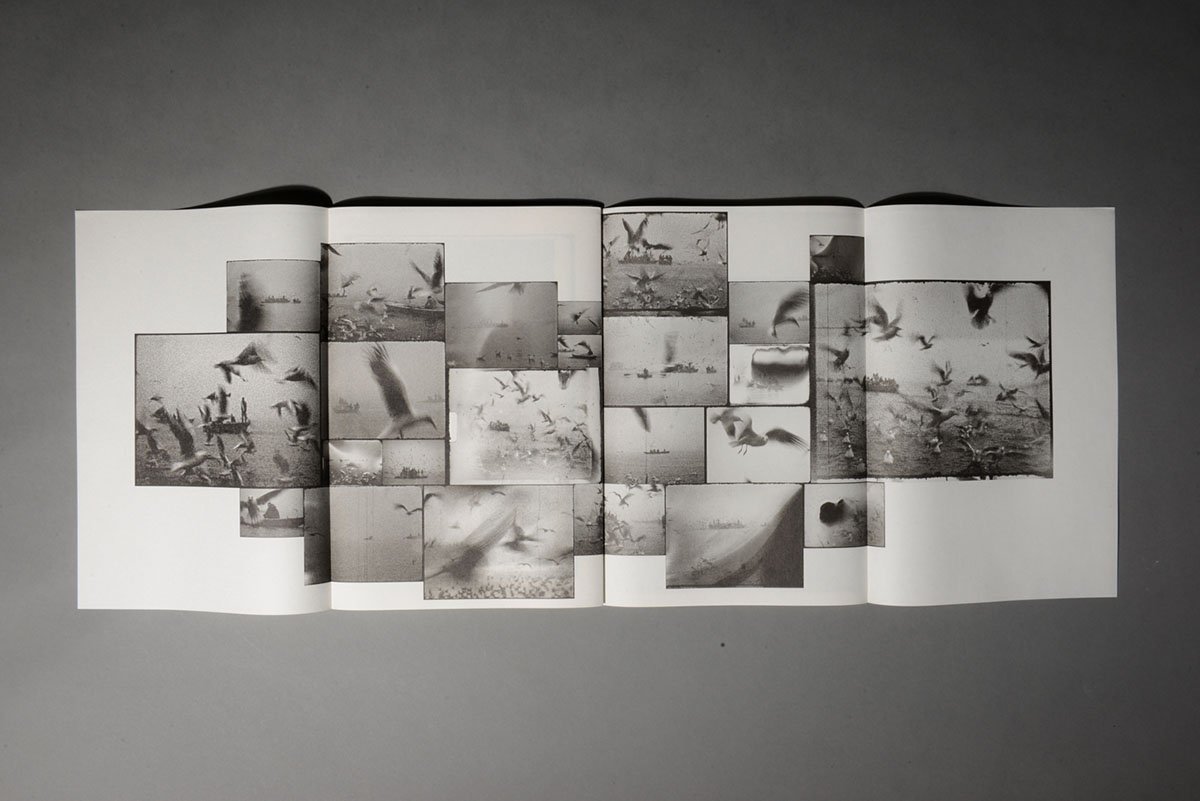
Bérangère Fromont "Except the Clouds"
Could you tell us about the commercial relationships with authors? Do the authors contribute financially to the production? Or is there a system of fees or a percentage of sales?
We started offering a percentage of copies, and now we offer an artist fee and very few copies. This proves more efficient, and in the end, artists don’t want tons of boxes in their bedrooms. Eventually, we co-published with authors. We call it COOP, and since 2018 we publish 3 books this way: self-publish photographers co-publish their books with us. We share part of the production costs, and we share 50-50 of the produced copies. This is a model we are unsure to keep doing, as having an artist with 50% of the copies in the market transforms us into a weird form of competitors. But on the other hand, it allows us to publish those extra books that we would not be able to if not in this model.
How many books do you publish a year? Are there any other projects inside
the publishing house except the author books? Is your work team large? If it is not, how do you assign roles?
We have lately published around 8 books a year. This is something that fluctuates depending on the available budget, available creative time, and the number of cool projects we got in the house during the year. If we don’t find enough nice things to put out, we would not mind publishing less in a year. Besides the books, we do bookmaking workshops and zines. We actually used to do a lot of zines in the past, but for the lack of time, we have focused on the books mainly. Though, zines are a subject that always comes back to us, as they are pretty fun to do. The workshops we do are called Impromptu, and we believe they are a super in-depth experience for those who take part, as we go through the whole process of bookmaking, from the concept, editing, and design until a full dummy. Detailing many production, marketing and creative issues. Impromptus are another thing we’d like to do more. Though… answering the second part of the question, we are very few people at Void, and we can’t spread too thin. Void is Myrto Steirou (co-founder and editor) and João Linneu (co-founder and designer). We also always have an intern with us. The creative part is divided as we credit ourselves. And on the practicalities, Myrto who is based in Athens (where our brick and mortar store is) takes care of everything related to the store, stock and finances. João, based in Reykjavík takes care of social media, advertising, and the commercial design part. Our interns support Myrto in Athens. We are a sort of publisher-octopuses.
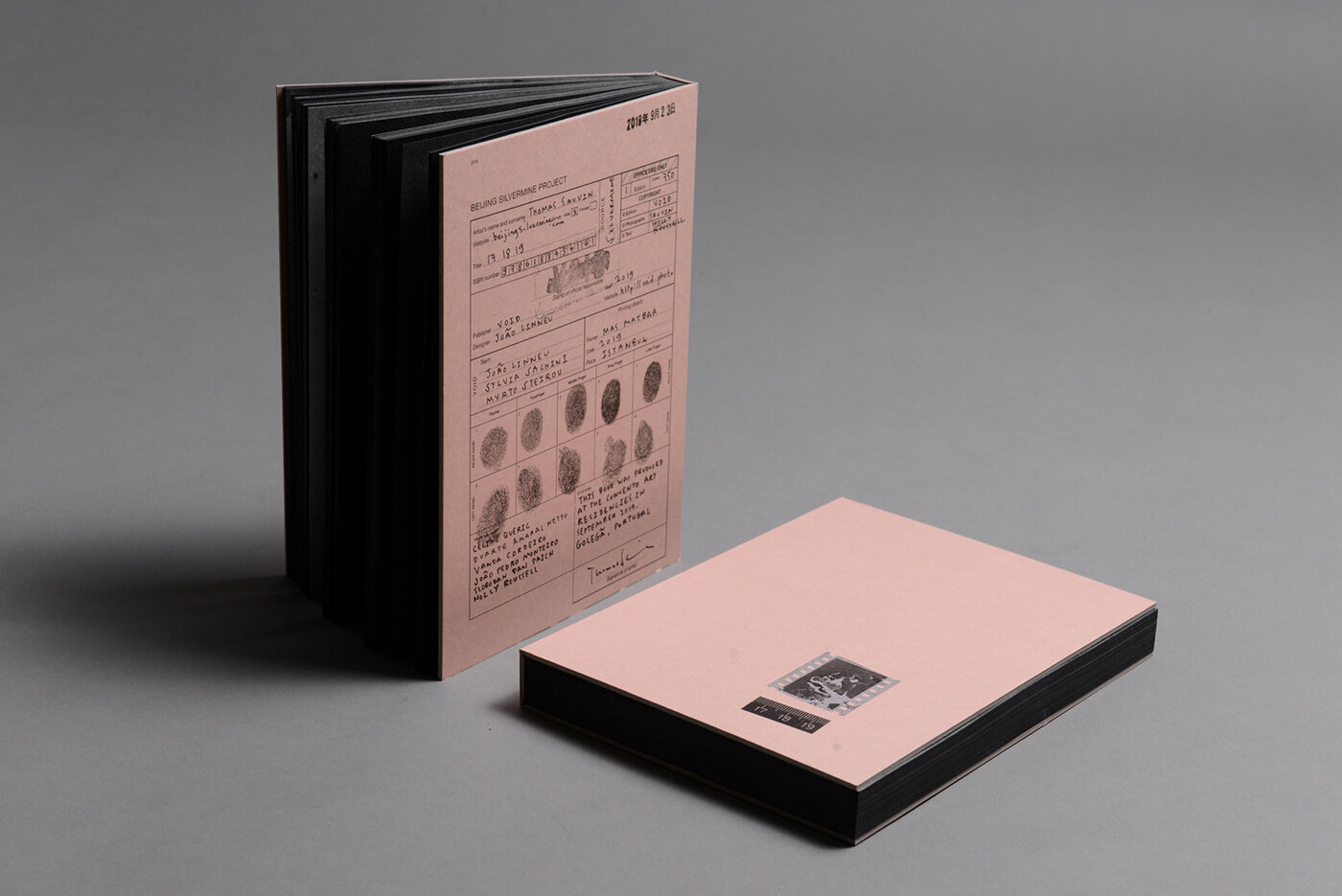
Thomas Sauvin "17 18 19"
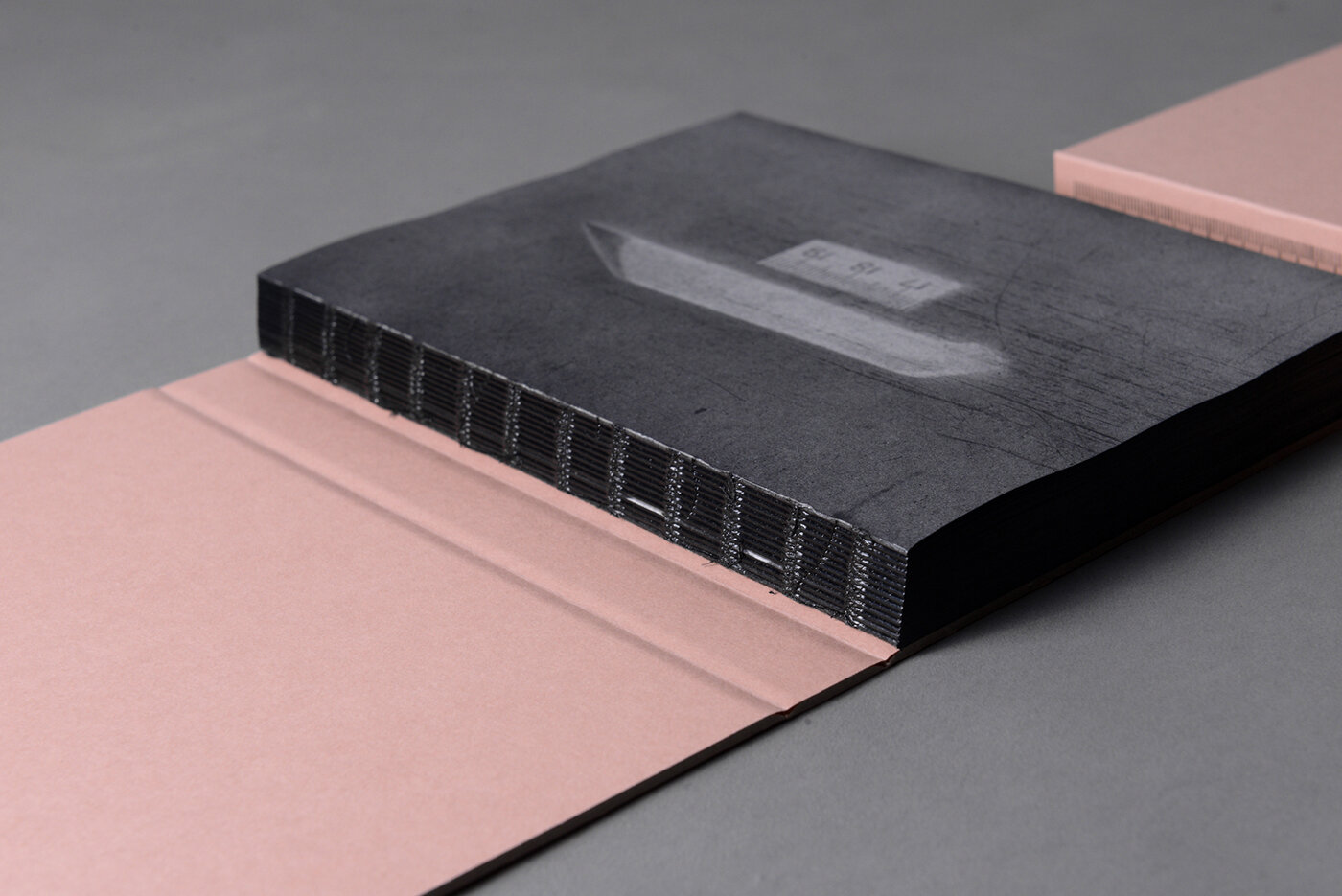
Thomas Sauvin "17 18 19"
What has changed in the publishing house and in your work since the first book was published? Did you have difficulties, complex emotions and how did you manage to get through it?
As mentioned above, the logistics and production prices went nuts. And this is a big market change. But on the Void itself, the change was that we started knowing nothing about the business. We knew literally nothing but how to assemble a book. And we had to learn every aspect of the business as we did it. Those almost 7 years were a very steep learning curve. And yes, full of emotions, drama, happiness, and frustrations. And those weird emotions are part of the driving force of independent publishers. At least, at Void, we try to channel those happy and difficult moments into opportunities and creativity.
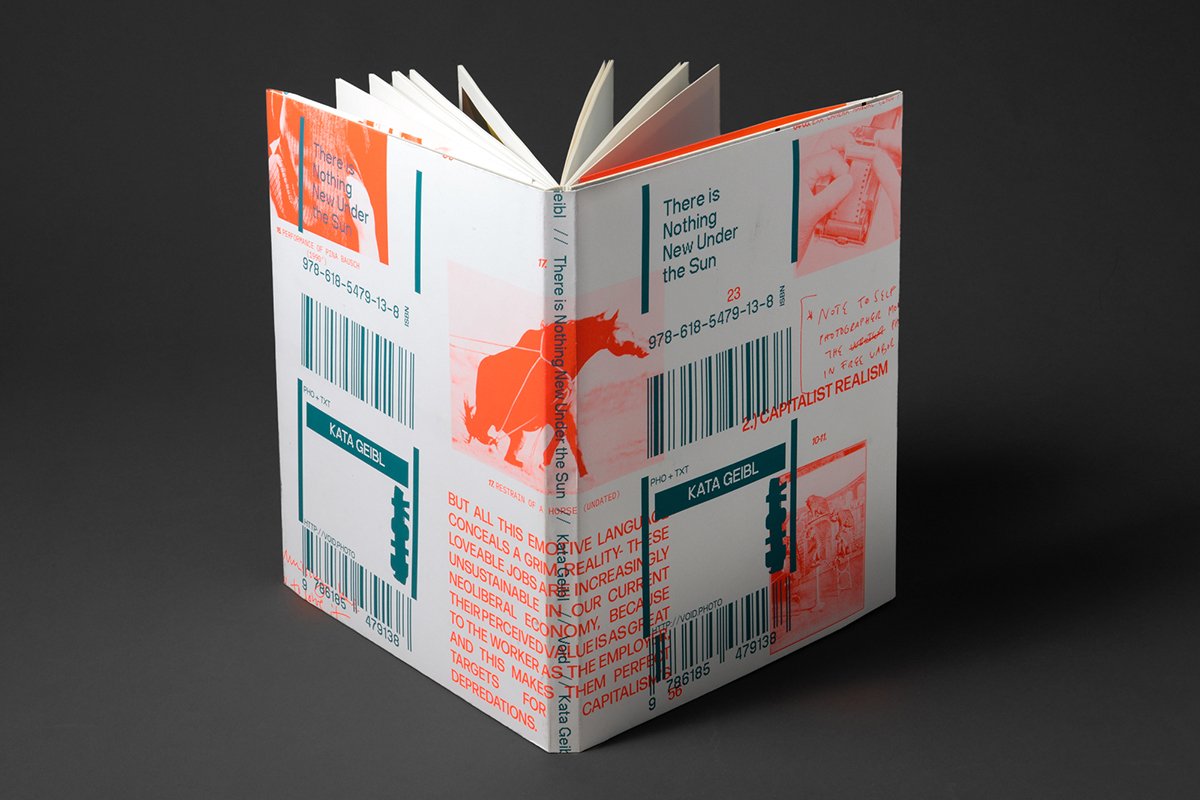
Kata Geibl "There is Nothing New Under the Sun"
Do you have an internship program? If you do, what are the conditions to become a part of your team?
We do! But, well… for our financial condition, we can only take interns who have Erasmus grants. We offer a chance to see from inside the running of an independent publishing house, and we also offer tutoring for the intern’s photographic projects. One of the main conditions is not to be an asshole.
How can the artists send you their projects for consideration? What is the first
thing artists should pay attention to, when they send you the appliance?
We are super open to unrequested proposals. As we are apologetic for not answering all the submissions, as it would demand a dedicated person just for this job. We are open to any kind of project — even the ones that don’t initially feel like things we published before. You might believe we would find an angle for any project we love to fit our portfolio. That said, we are not interested at all in finished books: something pre-designed or pre-edited is not gonna make it as a Void’s book. We are keen on having our fingerprints on the books we published.
Is there an artists support program in your publishing house or an educational
platform (workshops, lectures)?
As mentioned, we throw once a year a book-making workshop called “Impromptu”. It is something we’d love to do more and more. But it is difficult to spare the needed time to do so. We are always accepting offers for lectures whenever we are invited, as we also like the idea of chatting to people about the things we do, how we do them, our beliefs, mistakes, etc.
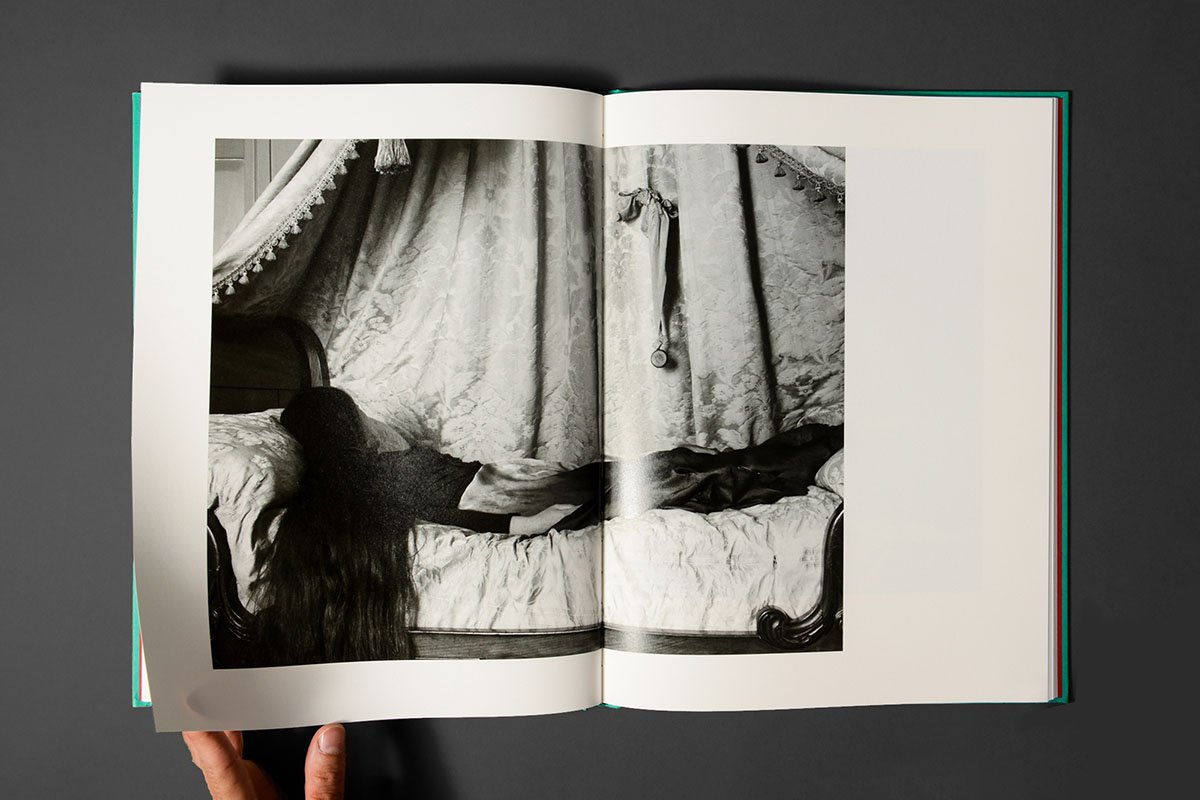
Tereza Zelenkova "The Essential Solitude"
Do you have a "successful work formula"? Or even a motto?
We avoid having formulas, and we treat every book as if we never have done a book before. We’d like them to look unique within our editorial line. Sometimes we feel that we are starting doing something more than often, and quickly try to change it as soon as we realize it is a pattern. The closest thing we can say about a motto is that we like to do “stupid” moves/things. We are happy to try unorthodox solutions to problems, and we make peace with an eventual failure. As we believe that this is an innerent part of being creative. We put our gut feelings above our rational thinking.
What plans do you have for next year? What are you dreaming of?
Most of our wish is to continue with our growth curve — financial, maturity, creative, partnership, etc. We want to publish cool and relevant work, that would not find a home in publishing houses out there. And we dream of better and peaceful times, where we can do books without the concern that no matter how important and relevant making books might be, there’s something horribly more relevant happening out there.
Void website
Practical info about COOP
Practical info about internship and submition your work
Practical info about "Impromptu"